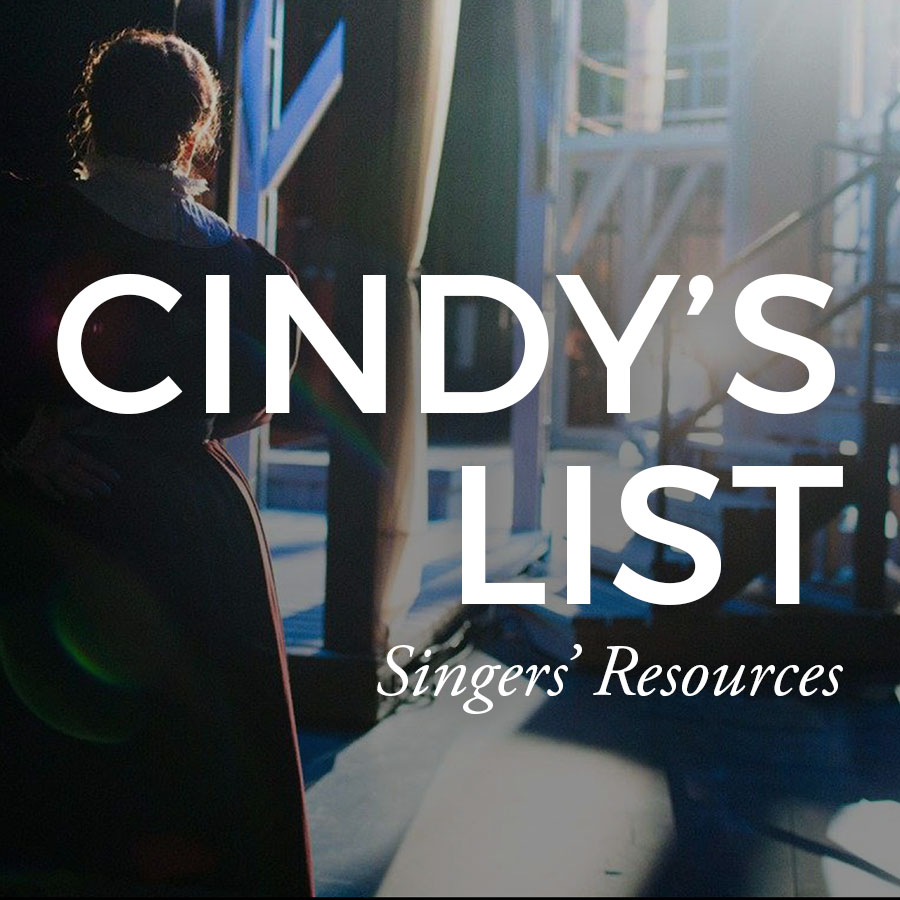It feels like Armageddon.
Whole countries are shutting their borders and closing concert halls, theatres, universities, and schools. The classical social media feeds are filled with posts from international singers who are trying to figure out how to get home, voice teachers struggling with taking their studios online, singers stunned by cancellations of contracts or student shows they’ve worked so hard to get. The looming pandemic aside, independent contractors and small businesses will take major economic hits.
We have so little information; everything is very new and very scary. But here’s the amazing thing: voice teachers, schools, organizations, and soloists are coming together to share resources and develop creative solutions like never before. As a community, we are used to making do, brainstorming alternatives, and handling crisis. We can, and will, get through this together.
Here are some of the wonderful resources available so far:
FOR TEACHERS
Many classical voice teachers are extremely skeptical about teaching online. It’s not the same as face-to-face, but it can still be quite effective. You need a webcam, microphone, speakers, headphones with a mouthpiece, strong Wi-Fi connection, and an app.
Many laptops have webcams and mics already built-in. A good quality headset doesn’t have to be expensive —- I’ve had great luck with this $21 Logitech. With a nice headset, you’ll be able to hear your students better and cancel a lot of outside noise, and you won’t need fancy speakers.
If you don’t like working with a headset, check the quality of your built-in speakers. A decent set of wired speakers will set you back between $14-$100 on Amazon.com. You’ll probably be fine with a $30 pair.
When it comes to apps, I prefer Zoom, which is used by many universities for online classes. The basic version is free (for up to 40 minutes and 100 people per session; but you can easily schedule two thirty-minutes sessions back to back for an hour lesson), it’s easy to use, and has good connectivity. The drawback? If your students are using their phones to access —- as many will —- this only works for 1:1 sessions if you need to be able to see them.
The main difficulty is that you can only hear one “side” at a time; so, for example, you can’t accompany your student and hear them while they warm up. However, there are ways around this.
Billy Golner of BGVocals.com has responded to the current crisis creating an excellent short video to walk you through best practices for online teaching.
Matt Edwards of Shenandoah Conservatory has a blog with great suggestions for online teaching.
Another great how-to comes from Eric Heidbreider, who offers step-by-step instructions and equipment recommendations.
NATS is being amazingly proactive in supporting its constituency. There will be a free online NATS Chat entitled “Calming the Coronavirus (COVID-19) Crisis and Taking Your Teaching Online" this Saturday, March 14 at 12:00 PDT/3:00 EDT. You do not have to be a member to join; and all chats are archived on the NATS YouTube channel and Facebook page. Register here.
Also, NATS members can take advantage of a free thirty-day trial through Appcompanist.com, and is working on an arrangement with VoiceLessons.com as well.
FOR PERFORMERS
Everyone is freaking out —- understandably —- about their gigs being canceled, or being stuck in foreign countries, unsure about travel or what the airlines are doing. Here’s some good news on the travel front: so far, most airlines seem to be waiving change fees and offering liberal rebooking policies. Things change quickly, so be sure to check your airline’s website. Here’s a document I put together based on what I was hearing and seeing from traveling colleagues.
Many others have put together amazing resource lists. The most comprehensive of these so far was created by Nicole Brewer, Ann Marie Lonsdale, Quanice Floyd, Tiffany Wilhelm, Brian Herrera, Hannah Fenlon, and Clementine Bordeaux , and include links for emergency funding, online teaching, remote job sites, mental health, physical health, advocacy, and more. This list is constantly growing. Visit it here.
Larger cities with big clusters of professional musicians tend to have more resources. What can those of us in smaller communities do?
Support others when you’re feeling strong —- take a break from social media and take it easy when you need to recharge.
Advocate. Write your Congressfolks and ask that they remember freelancers and arts organizations when they’re approving emergency funds. Be sure to personalize the letter for best impact.
Join me for a free Koffee Klatch workshop on Monday, March 16 at 6 p.m. CST. We will share ideas and support for riding this wave. Register here.
I’m trying to get a local fundraising initiative started : the Austin Area Classical Musicians Fund. The idea is that we will band together to offer live-streamed concerts and solicit donations; a task force will establish guidelines for applying and distributing funds to help local classical musicians who have lost gigs due to the need for social distancing. If you’re interested in doing the same in your community, join my mailing list for info about an upcoming live chat.
Last but not least … it’s a cliche, but nevertheless good advice: stay calm and carry on. Artists are called upon during times of upheaval to bring solace. Use the incredible technology we have at our fingertips to share messages of hope and serenity. This is a great time to share your YouTube videos and invite people to sit back and listen. Remind them of what we can do to help them escape, help them survive. Remind them that they need us.
It’s not going to be easy, but when has it ever been easy for us. Coraggio, my friends. We can do this.





